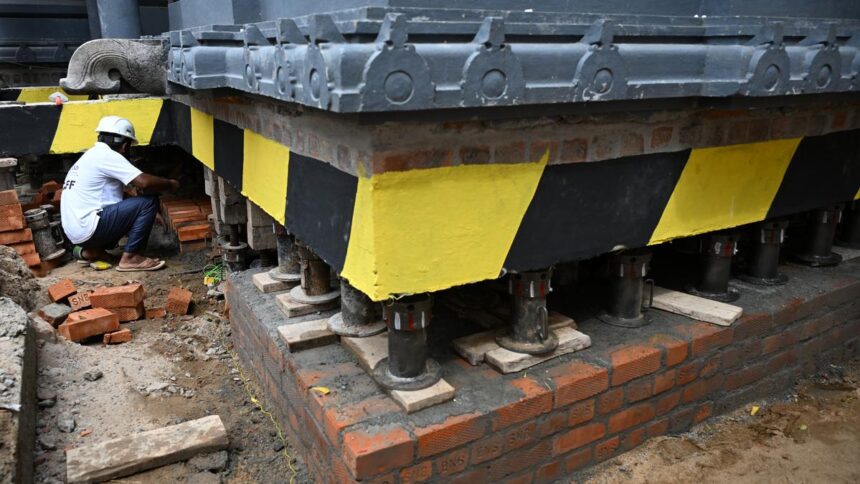
Supreme Court Justice Surya Kant inaugurates the e-library centre at Tiruchirappalli Bar Association on Saturday.
| Photo Credit: M. MOORTHY
Justice Surya Kant of the Supreme Court on Saturday said e-libraries were a pioneering investment in the future of legal education and practice, bridging traditional scholarship with the digital future and ensuring equal access to resources for young lawyers, solo practitioners, and students.
Inaugurating the G. Balasundaram e-Library Centre and the Centenary celebrations of G. Balasundaram, former president of the Tiruchi Bar Association, Mr. Surya Kant observed that libraries, historically created to democratise access to knowledge, must now adapt to the digital age. With legal practice facing increasing complexity due to cross-jurisdictional matters and the need for real-time updates, traditional research methods were no longer sufficient.
He said e-libraries ensured instant access to information while retaining the collaborative spirit of conventional libraries. Importantly, they also helped level the playing field by giving young lawyers, solo practitioners, and students the same access to comprehensive databases that were once confined to well-funded institutions.
Paying tributes to the late G. Balasundaram, Justice Surya Kant described him as a towering figure in Tiruchi’s legal history whose life and career embodied “the highest ideals of the legal profession in terms of integrity, dedication, and scholarly excellence.”
Mr. Surya Kant recalled his own professional association with the Madras Law Journal, which, he said, had been a vital source of updates in civil law.
He lauded the Madras High Court’s constitutional jurisprudence as scholarly, progressive, and firmly committed to justice, liberty, and human dignity.“Throughout its history, the Madras High Court has shown that constitutional interpretation must evolve with changing times while remaining anchored to the fundamental principles of justice,” he said, noting that its philosophy of using legal interpretation as a tool for social progress had shaped generations of judges and influenced constitutional jurisprudence across India.
Quoting a celebrated observation of the Madras High Court, he recalled: “Fundamental rights are not a mere empty decree but the throbbing aspirations of a civilised human life.” Such pronouncements, he said, reflected the philosophical depth that had long characterised the High Court’s constitutional adjudication and continued to enrich the Indian judiciary.
Justice Manindra Mohan Shrivastava, Chief Justice, High Court of Madras, said the legal profession is a marathon, not a sprint, where success comes through perseverance, integrity, and adherence to ethics — not shortcuts. He urged young lawyers to seek mentors who impart both practical knowledge and professional values.
Apart from the e-library centre, ‘G. Balasundaram Annual Memorial Lecture series’ and ‘Manupatra – an online legal research database’ was also launched at the event.
Justices M.M. Sundresh, K.V. Viswanathan and R. Mahadevan, Judges, Supreme Court of India; Justice Manindra Mohan Shrivastava, Justice Anita Sumanth and Justice P. Velmurugan, Judges of the High Court of Madras; Justice B. Rajendran, former Judge of the High Court of Madras; G. Masilamani, former Advocate General of Tamil Nadu and former Additional Solicitor General of India, Tiruchi Bar association president S. P. Ganesan, and Secretary C. Muthumari were among those present.
EOM/
Published – August 23, 2025 08:55 pm IST






















